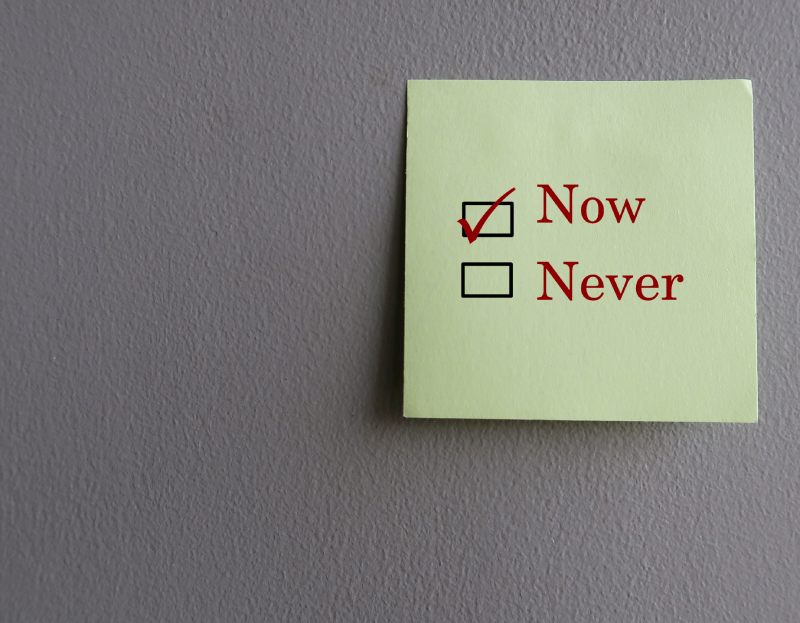Resilience is an important skill we all must develop to cope with life’s challenges and obstacles.
Indeed, resilience, determination, and grit are all factors that are crucial to our success and ability to thrive both physically and mentally as individuals.
It’s worth noting that while resiliency includes both emotional and physical resilience, today, we will be diving into emotional resilience, also known as psychological resilience.
So that no matter what life throws at you, you have the inner mental strength and resilience to recover and bounce back.
In this article, we will be exploring:
- What resilience is
- Examples of inspirational resilience
- Six ways to develop powerful resilience
Let’s start by understanding the true meaning of resilience…
What Is Resilience?
Resilience means different things for different people, but one common definition is “The process of adapting well in the face of hardship.”
When referring to mental resilience, this would be how a person’s emotional state and functioning can be recovered after rejection, destructive criticism, or a stressful event.
It’s the ability to keep going no matter what. To quickly pick yourself up after a fall and keep moving forward.
By possessing the strength of resilience, you will have the ability to keep your head up in the face of adversity and never give up on your dreams and goals.
Inspirational Examples of Incredible Resilience

Many of the world’s most successful people have faced incredible hardships but they never gave up. Instead, they kept fighting, even when things looked bleak. As a result, these people have developed robust mental resilience to overcome rejection and achieve great success.
When Naomi Campbell was told the door is shut for Black girls to get on the cover of Vogue, she said, “Well, I’ll kick it open.” This was a clear message that she would not allow others to have the power to reject her or make her feel bad. So instead, she made her own judgments about herself that she was attractive, interesting, and worthy enough to be on the cover. Sure enough, Naomi Campbell has now been on the cover of American Vogue eight times.
Famously, J.K. Rowling, an author best known for her ‘Harry Potter’ series, faced tremendous rejection from publishers but never gave up. Remarkably, she stuck her early rejection letters on her kitchen wall. Instead of letting this lower her confidence, she saw this as something she had in common with every writer she had ever admired, as publishers had also rejected them initially. Today, her books have sold over 500 million copies worldwide.
Lastly, Celine Dion sent her music to a recording label and called them, asking whether they liked her music. When they rejected her, she demonstrated incredible self-belief and resilience. She told them that they mustn’t have played it, as she believed it was not possible to hear her music and not love it. So they got her music out and played it. Thanks to her self-belief and resilience, they signed her on the spot.
These are all excellent examples of resilience in life. They all experienced their fair share of rejection, but they bounced back—they knew what they wanted to achieve and wouldn’t let anything or anyone get in their way.
When you face challenges, obstacles, and hardships in your life, you must also have the ability to bounce back. To return bigger, brighter, stronger, and better than ever before.
How To Develop Resilience

So, we’ve seen the effect of building resilience, but how can we develop it in our own lives?
There are many ways of developing resilience, but here are a few of the most effective methods:
The bounce-back factor
The first step in developing amazing resilience is to develop the ability to bounce back.
None of us like to be rejected. It can hurt us and often makes us feel sad, embarrassed, and wounded.
This is because humans are very fragile and we hate rejection—our minds run from it. So much so that often, we pledge to never put ourselves in that position that brought us pain, sadness, or embarrassment again.
But if you take that feeling and think, “I never want to experience that again,” you won’t allow yourself to return and try again, and, most importantly, you deny yourself the opportunity to reach your goals.
Instead, we must learn from our past rejections. This must be a clear and decisive action to commit yourself to bouncing back. And who knows, that rejection you faced could be the best thing that ever happened to you.
Perhaps you were rejected from a job application. But, with that added interview experience and time to improve your skills, you could find an even better job with amazing pay and benefits.
Or maybe you were dating someone who didn’t want to see you again, only to discover an amazing, new, exciting relationship soon after.
Being resilient means you will not let these rejections negatively affect how you continue to pursue your goals.
Harness the power of words
To strengthen your ability to bounce back, you must also harness the power of words. Tell yourself powerful statements, such as, “I am resilient,” “I have incredible grit,” “Nothing can phase me or deter me from my goals.”
These words are not only for you to say internally. You must also make a conscious effort to use them in your life with others.
For example, if you had a job interview that went badly, do you come away and call your friend explaining how awful it was and that you died of embarrassment when you couldn’t answer their questions?
When a relationship fails, do you say that the breakup “crushed” you? Do you explain to those close to you that you wouldn’t be able to cope with the pain of heartbreak ever again?
Instead, update your language. Say you learned some valuable lessons and are determined to bounce back.
This is the language used by someone who has that bounce-back factor; the grit, resilience, and determination to come back stronger than ever.
Never listen to negative criticism
People who have amazing resilience and grit don’t allow the negative words of others to affect their goals or how they feel about themselves.
When people say negative things, they may acknowledge it, but they won’t let those words in.
How do you do this?
It’s very simple. When someone says something negative to you, simply thank them for sharing their opinions.
Because that’s all it is—their opinion—and instead of listening to their negative opinion, you can listen to your own opinion. After all, your opinion is the only opinion that matters.
When you learn to do this, rejection can no longer hurt you.
Of course, if someone has constructive criticism for you, then this can be extremely helpful in identifying the areas in which you can change to help you meet your goals.
It is important to differentiate destructive criticism from helpful criticism. Destructive criticism is made up of negative words that are not helpful to you improving. Allowing these negative words in can diminish self-esteem. That’s why it’s called destructive criticism.
Instead, tell yourself motivating, encouraging, exciting things full of determination and grit.
Praise yourself frequently
While criticism diminishes our self-esteem, praise builds it.
Something critical people rarely do is praise. This is because they are not only critical of others but they are also extremely critical of themselves. Their self-criticism causes them to project negative thoughts and feelings outwards, so it is vital not to let these words in.
Therefore, to ensure you can live a happy life filled with self-esteem, you must create the habit of praising yourself.
When you develop grit and resilience, you praise yourself and become your own cheerleader. You should always aim to cheer yourself on with praise, even when you’re not winning. At the end of each day, tell yourself what an amazing job you did and how proud you are of yourself for the steps that have moved you closer to your goals.
Praise is an excellent motivator for the human mind. So even if you have not achieved much that day, cheer yourself on with praise. Tell yourself, “You can do it, and tomorrow, you’re going to be amazing—you’ve got this.”
See rejection as a delay
You can still achieve whatever you set out to—it just may require a different path than you first expected.
This is because, “No,” always means, “Not yet.”
So don’t let the feeling of rejection stop you. Remember, it’s only a delay—nothing more.
It’s also important to mention that when something doesn’t work out or comes up short, this should be seen as informative data about what change may need to happen for them to finally say yes next time.
Equally, what one person will say, “No,” to, another will say, “Yes,” to. Because, as we’ve established, “No,” does not mean, “No,” rather it means, “Not now,” or, “Not for me.”
Therefore, when you get a, “No,” do not stop there. Instead, exercise your personal resilience and bounce back. Work on whatever it is you are experiencing your delay with and commit yourself to come back later to try again.
Develop excellent coping skills
Again, we must revisit the power of words.
When something doesn’t go to plan and you face a delay, remember to carefully choose your words as you react to the situation.
If you tell yourself, “I am losing my mind,” “I can’t cope,” “Everything is going wrong,” then you are creating an extremely negative blueprint that your mind and body will move towards.
Instead, tell yourself that you have amazing coping skills that will allow you to overcome any adversity life throws at you. For example, say, “I am resilient, determined, and won’t take, ‘No,’ for an answer.”
Tell these words to yourself whenever you face rejection, and eventually, you will find what once would’ve emotionally hurt you and deterred you from your goals will no longer hold you back.
This is how you create the powerful habit of resilience.
Final Thoughts

When you implement these habits into your life, you will see that nothing can hold you back from achieving your goals.
As you develop your resilience, you will see this emotional strength grow, helping you to overcome any fear you may have had about not being good enough or worthy of success.
Resilience will become your key to success, helping you bounce back from any obstacle that life throws your way—all through embodying the strong, determined nature of those who can cope with the delay in a healthy manner and won’t take, “No,” for an answer.
Remember, there’s no better time than now to start practicing your coping skills, praising yourself, acknowledging the power of words, and seeing rejection as nothing more than a delay when moving towards your goals.
If you want to develop incredible inner strength and resilience in your life, check out Marisa Peer’s range of self-hypnosis audios today.



